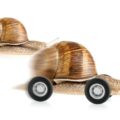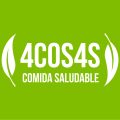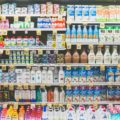It’s been nearly a decade since I became vegan. And in that time whenever I’ve need blood work I’ve explained that I’m vegan and asked that my vitamin levels be tested as well, just to be sure. Never once was there a problem, except doctors who thought it necessary to warm me against the potential dangers and risks my lifestyle could cause. There was never a problem, until about six months ago.
My energy levels were almost depleted. I could sleep 12 hours and still be exhausted. Spending time with friends was draining, reading books was impossible because words would blur across the page. I went to my doctor and was told my B12, iron and calcium levels were all well below normal.
At first my doctor refused to do anything. He said that because my deficiencies were due to a personal choice he wasn’t willing to do anything more than recommend I at least start eating eggs again.
I found another doctor who respected the choices I’d made for my life and got me on supplements as well as regular blood work so I could monitor my levels.
But what came as a real shock was the reaction of friends and family, none of whom are vegans themselves. All those I told about my deficiencies that were directly related to my diet looked at me as though they were expecting this, that it was only just a matter of time. And then one by one they would try to press fish, seafood, fried eggs, poached eggs, scrambled eggs and blocks of cheese on me. My boyfriend was convinced the supplements would take ages to work, but the doctor confirmed that my health would improve at the same rate if I were taking supplements or if I were to change my diet to reintroduce animal products.
But here I found myself forced to defend over and over again my reasons for being vegan – the benefits to the environment, the improvement to the animal’s well-being, the advantage for my own health. The situation escalated to the point a friend asked me if I was going to wait until I’d had my first miscarriage before I started ‘taking care’ of myself. The support I was once given as a vegan was gone replaced by skepticism and doubt that I was putting my health in danger.
With the supplements, stress management and a renewed dedication to good eating I was back to normal within a few months my vitamin levels were all safely within the healthy range once more. Convincing my friends and family that I was doing no harm though took a bit more work.
For the doubters out there asking why I got a deficiency in the first place – well as vitamin deficiencies happen equally in all style of diet, the same rules apply. Stress is the biggest factor. Following on the tail of stress comes poor diet – which means too much of what you don’t need and not enough of what you do. And when you’re stressed out you’re more vulnerable to overindulging in junk and not getting the good stuff that’s going to keep you healthy.
And although the contributors to this blog are all well aware of what’s to follow I would like to dispel the myths of a vegan diet being especially prone to deficiencies and ill health. When I became vegan everyone was oh-so-concerned about where I was getting my protein from. Now it’s all about B12. So let’s start with myth number one, protein. First of all, the amount of protein people need fluctuates from 46-56g/daily, depending on your age and gender.
A half a cup of beans contains the same amount of protein as 3 ounces of steak, and they have much more nutritional value. The fiber in beans will keep you regular and feeling full for hours. Tofu, broccoli, brown rice and almonds area all easy examples of getting the protein you need.
As far as B12 goes? Well, again, there’s no reason why you can’t get what you need. Although you will need to rely on foods fortified with B12 as meat, dairy and eggs are the only reliable sources of B12. But fret not as fortified sources of B12 include soy milk, textured vegetable protein and some breakfast cereals.
For more information on vegan diet and health read the Happy Cow essential guide to vegan nutrition.
https://www.happycow.net/vegan_nutrition101.html
If you’re worried you might have vitamin deficiencies consult a medical professional to discuss your concerns.
Disclaimer: This information is not intended to replace the diagnosis, treatment and services of a physician. Any recommendations and indications are at the user’s discretion. For severe or life-threatening conditions, always seek immediate medical attention.






2 Comments
Suz (6 comments)
November 30, 2009 at 2:57 pmnice article! don’t forget that nutritional yeast is also a good source of B12 – says so in the link on vegan nutrition 101.
it can a be a challenge, esp at this time of year, to ignore well-meaning friends and family who really are worried and don’t understand. hang in there, be true to YOU and your values. soon enough, they’ll be coming to you for advice…! — S 😀
Chia (324 comments)
November 30, 2009 at 3:19 pmThanks Canook, for bringing attention this subject about paying attention to one’s diet to maintain optimal health. Keep well!